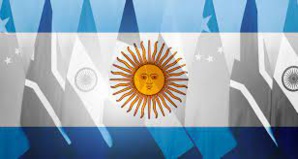Argentina has backed out of its intended admission into the growing Brics club of nations, as announced by its new president, Javier Milei. Milei claimed in a letter to the presidents of South Africa, Brazil, Russia, India, and China that decisions made by the previous administration had been changed.
The Brics nations are frequently viewed as a counterbalance to the world dominated by the West.
A much-discussed new batch of six nations, including Argentina, was scheduled to enter the grouping the following month. On January 1st, it would have joined Saudi Arabia, the United Arab Emirates, Ethiopia, Egypt, Iran, and Ethiopia in the Brics club.
Which nations are joining the Brics organisation, and what is the group called?
Its reversal of course follows Mr. Milei's unexpected election victory in November as a populist right-wing outsider who made bold promises to revive the struggling South American country's economy.
Alberto Fernández, a left-wing Peronist whose opinions were more in line with those of the bloc's current members, was replaced by him.
In his letter, Milei stated that his administration's foreign policy "differs in many ways from that of the previous government".
Even while he did not think it "appropriate" for Argentina to join the Brics, he continued, he remained dedicated to fortifying bilateral connections, especially in order to boost trade and investment flows.
China dominates the Brics alliance's economy, accounting for over 70% of the bloc's total GDP, despite the alliance's promotion of a more multipolar world.
Beijing had backed Mr. Fernández's bid for Argentina to join the EU, but Mr. Milei has sharply denounced China.
While on the campaign road, he declared he would not collaborate with communists and called the Chinese government killers.
Argentina is trying to undo decades of economic mismanagement, and its shifting views show how delicate its political and economic position is.
It is struggling with skyrocketing inflation, as prices have increased by around 150% in the past year. In addition, it is beset by a high level of public debt and low cash reserves, with 40% of the people living in poverty.
The nation's currency has already been devalued by more than 50% under Milei's administration as his plans for economic shock therapy start to materialise.
Argentina's two largest trading partners outside of the Brics are Brazil and China, but the US is not far behind, so maintaining positive working relationships with all three is crucial.
Furthermore, Milei appears to be leaning more towards Washington than Beijing going forward—a man who has considered substituting the US dollar for the Argentine peso.
(Source:www.livemint.com)
The Brics nations are frequently viewed as a counterbalance to the world dominated by the West.
A much-discussed new batch of six nations, including Argentina, was scheduled to enter the grouping the following month. On January 1st, it would have joined Saudi Arabia, the United Arab Emirates, Ethiopia, Egypt, Iran, and Ethiopia in the Brics club.
Which nations are joining the Brics organisation, and what is the group called?
Its reversal of course follows Mr. Milei's unexpected election victory in November as a populist right-wing outsider who made bold promises to revive the struggling South American country's economy.
Alberto Fernández, a left-wing Peronist whose opinions were more in line with those of the bloc's current members, was replaced by him.
In his letter, Milei stated that his administration's foreign policy "differs in many ways from that of the previous government".
Even while he did not think it "appropriate" for Argentina to join the Brics, he continued, he remained dedicated to fortifying bilateral connections, especially in order to boost trade and investment flows.
China dominates the Brics alliance's economy, accounting for over 70% of the bloc's total GDP, despite the alliance's promotion of a more multipolar world.
Beijing had backed Mr. Fernández's bid for Argentina to join the EU, but Mr. Milei has sharply denounced China.
While on the campaign road, he declared he would not collaborate with communists and called the Chinese government killers.
Argentina is trying to undo decades of economic mismanagement, and its shifting views show how delicate its political and economic position is.
It is struggling with skyrocketing inflation, as prices have increased by around 150% in the past year. In addition, it is beset by a high level of public debt and low cash reserves, with 40% of the people living in poverty.
The nation's currency has already been devalued by more than 50% under Milei's administration as his plans for economic shock therapy start to materialise.
Argentina's two largest trading partners outside of the Brics are Brazil and China, but the US is not far behind, so maintaining positive working relationships with all three is crucial.
Furthermore, Milei appears to be leaning more towards Washington than Beijing going forward—a man who has considered substituting the US dollar for the Argentine peso.
(Source:www.livemint.com)






